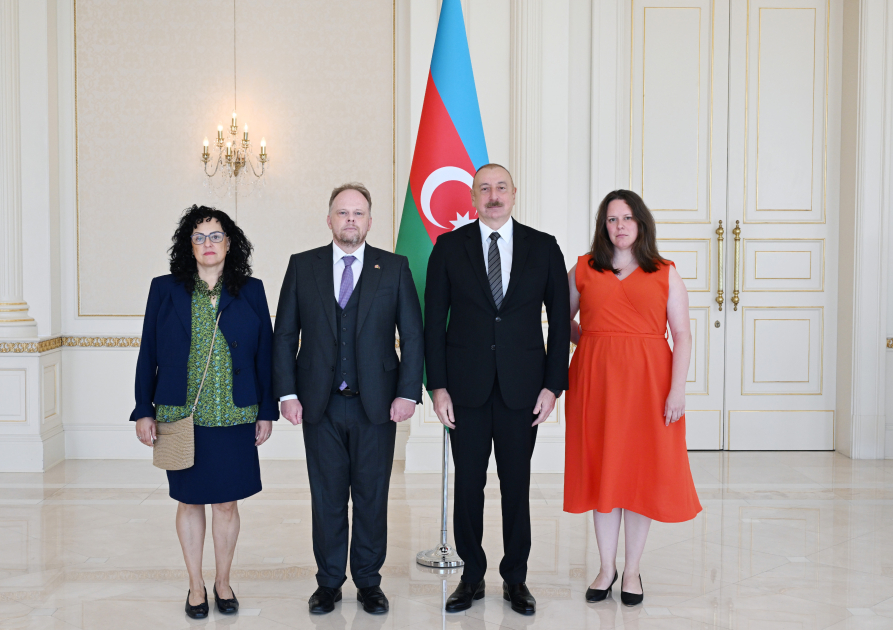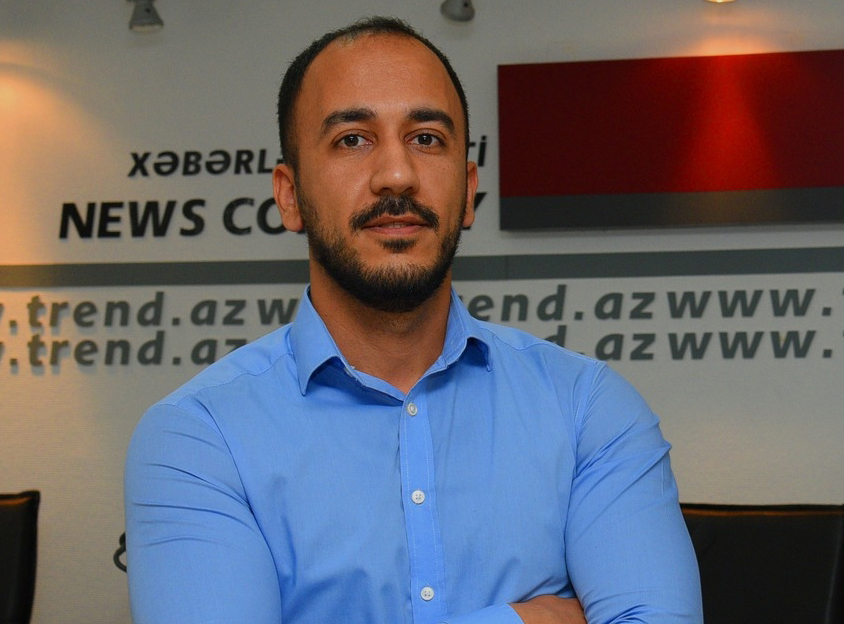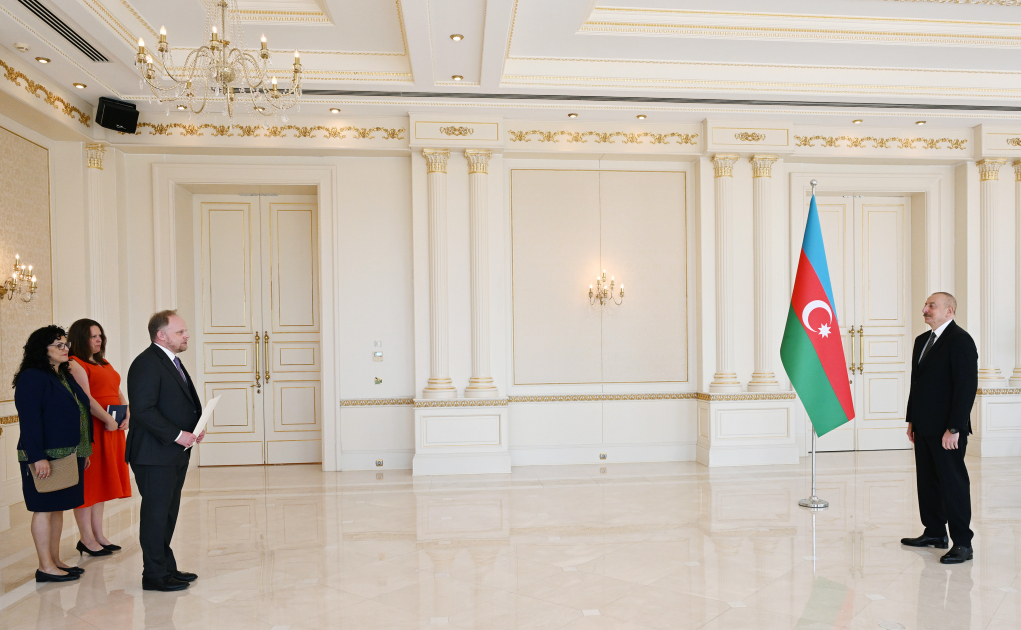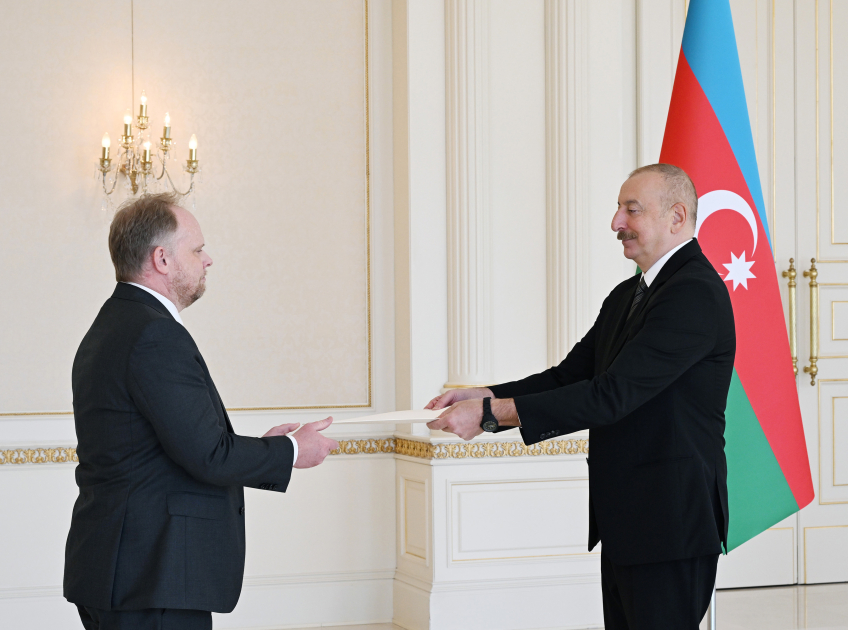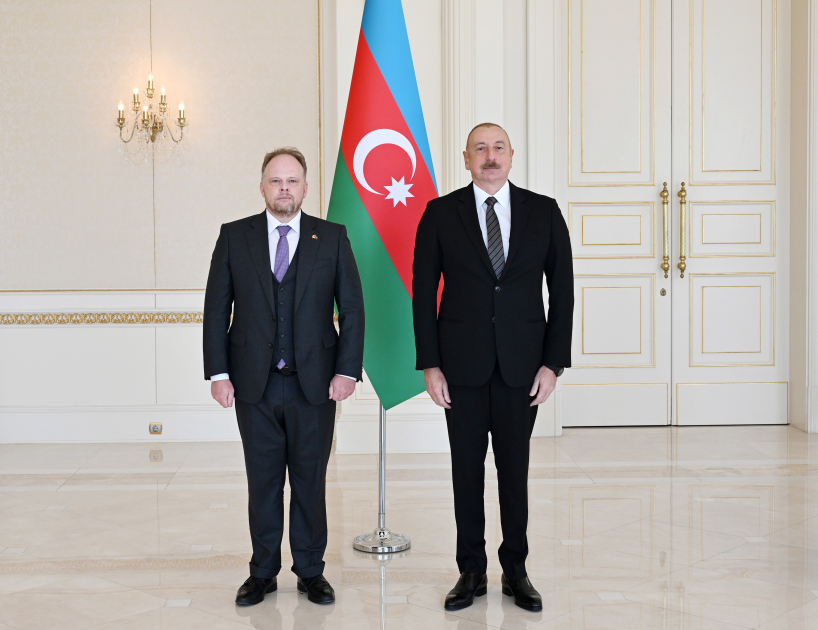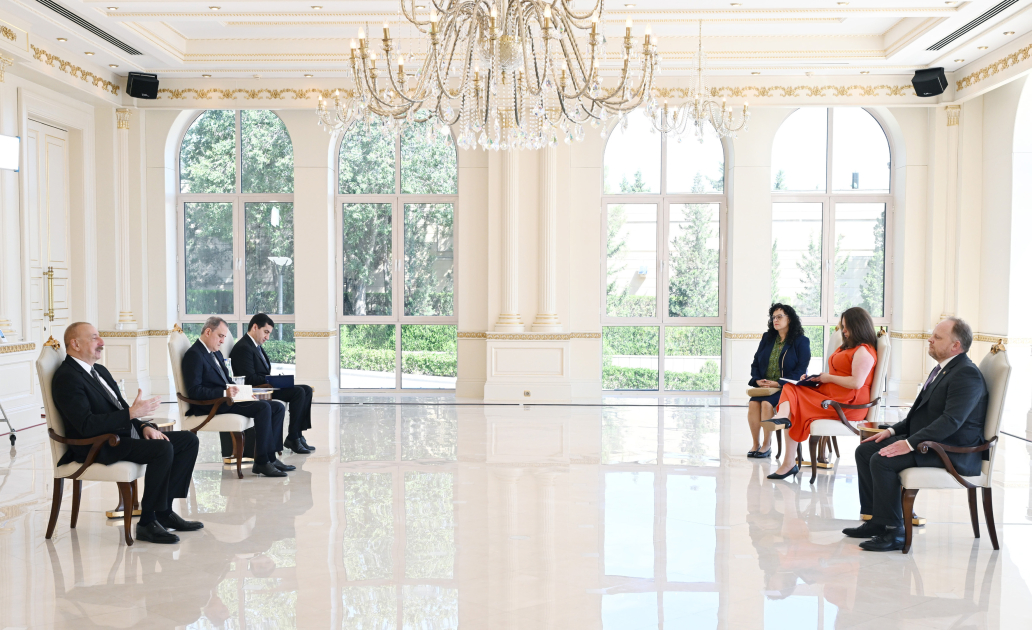BAKU, Azerbaijan, July 1. President of the Republic of Azerbaijan Ilham Aliyev received the credentials of the newly appointed Ambassador Extraordinary and Plenipotentiary of Canada Kevin Hamilton on July 1, Trend reports.
Ambassador Kevin Hamilton emphasized that Azerbaijan is a very beautiful, dynamically developing, and important country. Expressing his hope that if a comprehensive peace treaty is signed between Azerbaijan and Armenia, it will provide new opportunities for cooperation in the region, the ambassador said that they wish to establish better relations in the region, so that it will contribute to the development of relations both with Azerbaijan and Armenia.
Noting that Canada has always supported the sovereignty and territorial integrity of Azerbaijan, the ambassador said that he is aware that active work is underway on a fair, comprehensive, and permanent peace treaty.
The head of state underscored that during the occupation of Azerbaijani lands, ethnic cleansing and genocide were committed there, and the territories were massively destroyed. President Ilham Aliyev stated that great efforts were made to resolve the conflict at that time, however, these efforts failed. “Thus, the three permanent members of the UN Security Council failed to resolve the conflict, or rather, did not want to. All of them wanted the occupation carried out by Armenia to last forever due to various reasons,” the Azerbaijani President mentioned. The head of state said that he came to this conclusion based on his personal experience with his presidential activities. President Ilham Aliyev recalled that, starting at the end of 2003, he met with the three former Minsk group members and the Armenian side several times, adding that all this yielded no results. The head of state stressed that the former Minsk group members and the Armenian side did not want this, adding that “the Armenian side wanted to keep our lands under occupation forever.”
Underscoring that there are now better results at the bilateral level, the head of state said that there is no interference in this process by anyone. “We can come to an agreement on border delimitation and even demarcation, which is a rare case,” the head of state noted. The President of Azerbaijan mentioned that although it is true that the peace treaty has not been signed yet, the border delimitation has already been achieved.
President Ilham Aliyev emphasized that in the case of COP29, Armenia lifted its veto on Azerbaijan regarding hosting this event, and we did not oppose their participation in the governing bodies of the COP. The head of state noted that, “frankly speaking, he does not think that the peace treaty between Azerbaijan and Armenia can play an important role for our bilateral relations with any country.”
Saying that we are diversifying our diplomatic activities at the global level, the head of state underlined that there is a declaration on strategic partnership between Azerbaijan and 10 countries of the European Union, and emphasized that “most of these documents were signed during the occupation of our lands at a time when there was no peace treaty between Azerbaijan and Armenia.” “In this regard, the absence of a peace treaty between Armenia and Azerbaijan cannot be a factor in determining the level of activity of any country in the region,” President Ilham Aliyev underscored.
The head of state emphasized that for 28 years, Armenia refused to comply with the fundamental principles of international law. They violated all humanitarian laws and ignored the relevant resolutions of the UN Security Council demanding the immediate and unconditional withdrawal of Armenian forces from the occupied territories of Azerbaijan. No one held them accountable in the slightest. A number of countries discussing the conflict did not declare loyalty to the territorial integrity of Azerbaijan. President Ilham Aliyev stressed, “now, after we have defeated Armenia’s occupying forces on the battlefield and expelled them from our lands, we hear statements supporting our territorial integrity. But we have already secured it ourselves. Whether someone recognizes our territorial integrity or not is irrelevant.” The President of Azerbaijan noted that this was important when Azerbaijani lands were under occupation. “It is known that pro-Armenian sentiments and the role of the Armenian diaspora exist in some Western countries. However, when it comes to international law, these emotions should be set aside. It is important to understand that issues unresolved for 28 years are difficult to solve in 1-2 years. Moreover, substantive negotiations between Azerbaijan and Armenia only began in December. Before that, Armenia wanted to include the so-called "Nagorno-Karabakh" issue in the peace agreement, which was unacceptable,” the President of Azerbaijan said. President Ilham Aliyev emphasized that this is Azerbaijan’s internal matter. “Thus, after the dissolution of the separatist regime, negotiations have been ongoing for only six months since December. The head of state stated that this requires time, and, of course, the main condition for the peace agreement is the amendment of Armenia's constitution. Because it contains territorial claims against Azerbaijan, and until this is addressed, a peace agreement will not be signed. This is a known fact.”
The President of Azerbaijan also noted that, despite this, he believes that “we are making considerable progress in the negotiation process.” The head of state said, “I believe we can finalize the text of the peace agreement, or at least its main principles, within a few months. During the occupation period, the mediators' plan was to agree on the basic principles known as the Madrid Principles. These principles should have been initialled with the text to be drafted later. We believe this could be an option—reaching an agreement on the basic principles, initializing them, and then working on the text.” President Ilham Aliyev noted that this will happen if Armenia amends its constitution.
In response to the ambassador's comment on the right of return, the President of Azerbaijan stated that the right of return should be mutually ensured, including for the representatives of the Western Azerbaijan Community. In this regard, the head of state noted that in various stages of the last century, the most recent being in 1988, the indigenous Azerbaijani population was subjected to ethnic cleansing from the current territory of Armenia, and their material and cultural heritage was completely destroyed.
The ambassador expressed his respect for the head of state and thanked him for the information.

